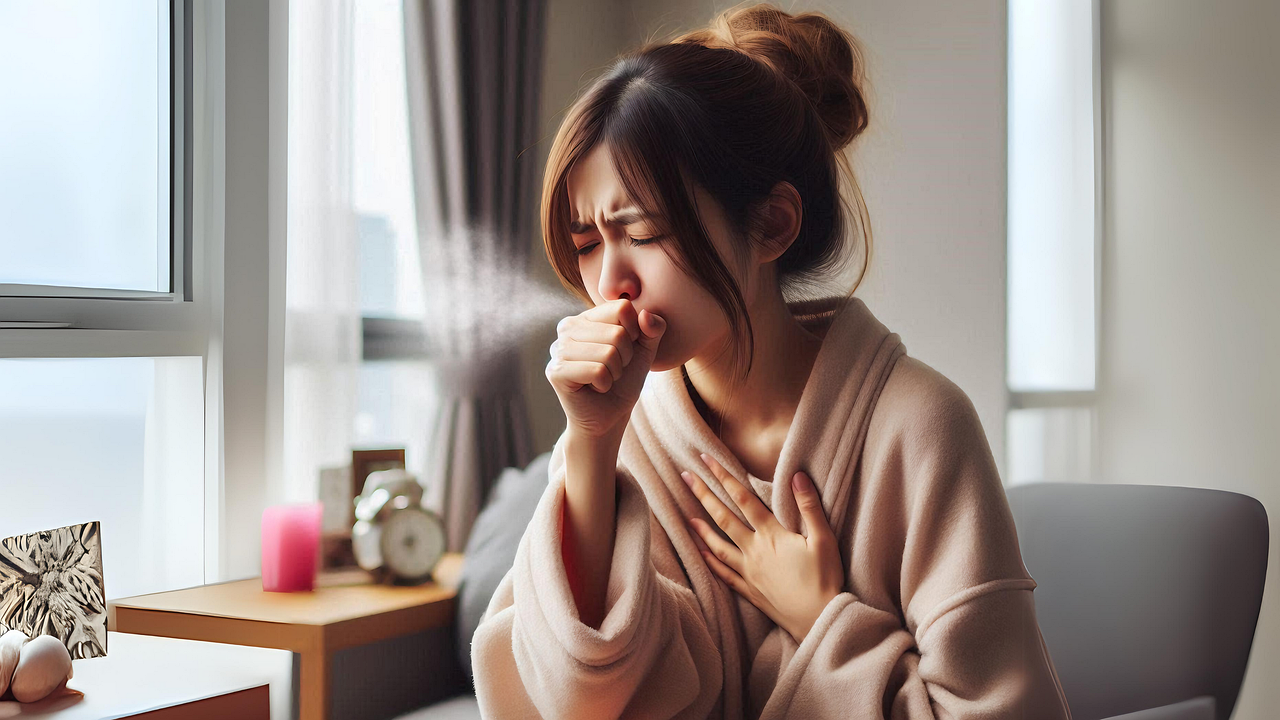Home – Areas of Treatment – Respiratory tract complaints
Asthma
Asthma is an inflammatory disease of the airways characterized by hypersensitivity of the bronchial system and reversible airway constriction. The main symptom is respiratory distress.
In asthma, communication between the lungs and kidneys is impaired due to kidney weakness. The kidney has the task of receiving the descending lung Qi and keeping it down, comparable to “deep inhalation into the abdomen”. The therapeutic principle consists of strengthening the kidney and regulating the lung-kidney relationship.
Bronchitis
Bronchitis is usually the result of a viral infection of the upper airways that spreads “downwards”. A viral disease (e.g. measles) that affects the whole body can also begin with acute bronchitis. Chemical irritants (inhalation of smoke or acids) can also be the cause.
Initially, the cough is dry. After swelling of the mucous membranes, which stimulates the production of mucus, the cough becomes productive (with mucus expectoration). The sputum – referred to as sputum in medical terminology – is viscous or thin. In the case of viral inflammation, it is usually clear to greyish, whereas in the case of bacterial inflammation it tends to be yellow-greenish in color, although this can only give a general indication of the underlying cause.
TCM classifies the symptoms of bronchitis into different patterns, depending on the color and consistency of the sputum. A cough in combination with yellow-greenish sputum indicates phlegm-heat in the lungs, whereas a combination with clear sputum is more likely to indicate phlegm-cold or only phlegm. During TCM treatment, the phlegm is drained/transformed from the lungs and the lung Qi is strengthened.
Cough
The cough reflex is a protective reflex that clears or keeps the airways free of foreign bodies and other harmful stimuli. Coughing up sputum and clearing the throat are also based on this reflex mechanism. The cough can have different characteristics (acute, chronic, dry, with sputum, etc.). A cough that lasts longer than 3-4 weeks should be investigated by conventional medicine.
A cough is a so-called cardinal symptom for the lungs. The underlying patterns that cause coughing are very diverse and must always be investigated individually. In the background, however, there is always an imbalance in the lungs that needs to be regulated. With acupuncture and herbal therapy, it is possible to strengthen the lung Qi and harmonize its flow again.
Hoarseness
Patients usually complain of a raspy, scratchy voice. The causes of hoarseness are very varied. Basically, any hoarseness that lasts longer than 3 weeks, regardless of age, should be clarified by an ENT doctor.
According to Chinese medicine, hoarseness is caused by dryness. (It is important to find out what has caused the dryness.) The causes are mainly heat/cold in the lungs or a yin deficiency in the lungs due to chronic smoking. The treatment focuses on moistening and strengthening the lungs. In addition, the causes that have led to hoarseness should be avoided or reduced.



